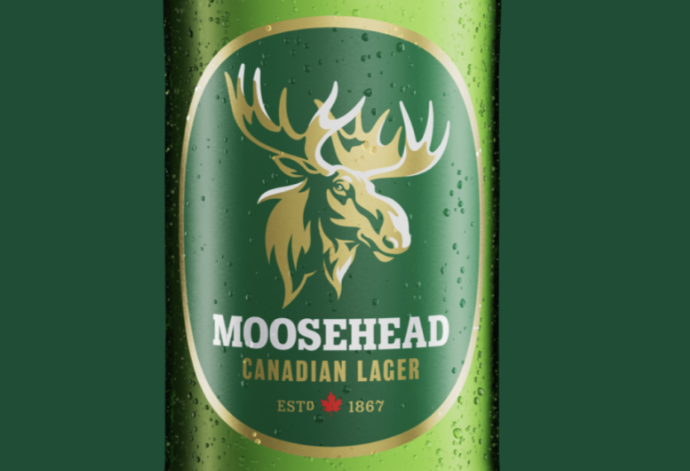您想继续阅读英文文章还
是切换到中文?
是切换到中文?

THINK ALUMINIUM THINK AL CIRCLE

For generations, Moosehead’s green bottle has been more than just packaging, it’s been a fixture in Canadian beer culture, a symbol instantly recognised from coast to coast. But soon, that era will come to an end. Moosehead Breweries, the country’s oldest independent brewer still run by the founding Oland family, is preparing to say goodbye to its signature glass bottles and embrace the aluminium future.

Why this shift from glass to aluminium?
According to Andrew Oland, president and CEO of Moosehead Breweries, bottles now account for just seven per cent of beer sales in Canada, compared to 85 per cent in cans. Only five years ago, cans represented 65 per cent of the market. In a move that mirrors shifting consumer preferences and broader industry trends, Moosehead announced that by early 2026, its entire product line will be sold exclusively in cans and kegs.
It’s a decision steeped in both nostalgia and practicality - while bottles once dominated Canadian beer sales, today cans reign supreme. And though the departure of the green bottle may tug at loyalists’ hearts, Moosehead insists the change will ultimately mean fresher beer, greater sustainability, and new investments in its canning operations.
Also Read: Sip it, enjoy it & recycle it with ready-to-eat soup in aluminium cans
Moosehead emphasised that aluminium cans provide better protection from light and oxygen, two key culprits that can spoil beer and cause a skunky taste. They also use less material and energy to manufacture and transport.
How to get the last green bottle?
The brewery’s final run of bottled beer is scheduled for this December, with limited quantities expected to remain on shelves into early 2026. International bottle shipments have already ceased as of this summer. Moosehead noted that the complete transition to aluminium cans will allow greater investment in its canning operations in the years ahead.
To mark the farewell, Moosehead has launched a campaign called “The Last Bottle.” Canadians can visit moosehead.ca to showcase their Moosehead pride for a chance to claim the final bottle ever produced. The lucky winner, chosen by Andrew Oland and his team, will be invited to Moosehead Breweries to witness the last bottle roll off the production line. The experience includes a brewery tour, time with Oland and Moosehead employees, and the honour of taking home the very last green bottle.
Moosehead, guided by the Oland family since its founding in 1867, remains the last major Canadian brewery still under Canadian ownership. President and CEO Andrew Oland acknowledged that the decision to move away from bottles was not made lightly, noting that the iconic green bottle has long stood as a defining symbol of the brewery across generations.
Get industry insights from - ALuminium in Packaging: Consumer Trends and Market Dynamics
What about the rising cost of aluminium?
Although cans are easier to produce than bottles, Beer Canada has cautioned that tariff-driven spikes in aluminium prices, combined with higher taxes, are pushing costs up for consumers. In a LinkedIn post earlier this year, the trade group representing Canadian brewers noted that while Canada produces some of the world’s greenest primary aluminium, it lacks the rolling mill capacity needed to turn it into the can sheets required for beer cans.
As a result, most Canadian primary aluminium is shipped to the US for processing and then brought back as sheets or finished cans. Beer Canada warned that tariffs are inflating costs for both brewers and consumers on both sides of the border. While Canada removed most of its retaliatory tariffs on US goods as of September 1, a 25 per cent counter-tariff still applies to steel, aluminium, and autos. On top of that, a federal beer tax increase on April 1 has added further pressure to the prices Canadian consumers pay at the checkout.
Beer Canada told Metroland earlier this year that US tariffs on Canadian primary aluminium are costing brewers an estimated USD 165 million annually across the 3.7 billion aluminium cans they use, adding roughly four to five cents per can. With Canada’s 25 per cent retaliatory tariff on US can sheets and lids, that impact could climb beyond USD 300 million. On top of that, a two per cent federal beer tax increase introduced on April 1 tacked on another USD 12.8 million in costs, before GST and HST. Since the federal government implemented automatic annual beer tax hikes in 2017, overall beer taxes have risen by 18 per cent.
Beer Canada noted that taxes now account for about 46 per cent of the retail price of beer in Canada, the highest rate among all G7 nations. The group is urging provincial and federal governments to scrap the automatic annual tax increases and provide tax relief to brewers, the hospitality sector, and consumers, while protecting Canadian beer industry jobs.
Also Read: 627 billion cans by 2030: Smart packaging is catalysing aluminium soaring demand
Responses








